Venezuelan President Nicolas Maduro Sworn in Amidst Election Controversy
Nicolas Maduro has been sworn in for a third term amidst allegations of election fraud by opposition leader Edmundo Gonzalez, who the U.S. recognizes as the legitimate president. Maduro’s administration faces severe criticism and civil unrest as the country grapples with a significant political and economic crisis, with hopes from the opposition for a shift in governance through protests.
Venezuelan President Nicolas Maduro has been officially sworn in for a third consecutive term following a highly contentious election marred by allegations of voter fraud. Despite opposition claims led by Edmundo Gonzalez, who declared himself the victor, Maduro affirmed that he won approximately 51 percent of the votes. His inauguration defies international opposition, particularly from the United States, which recognizes Gonzalez as the legitimate winner of the July election. During the ceremony, Maduro expressed his aspirations for a period marked by peace, prosperity, and respect for the laws of Venezuela.
The political landscape in Venezuela remains fraught with tensions as Maduro faces ongoing criticism over authoritarian practices and the nation’s severe economic crisis. The opposition, which bore hopes of replacing Maduro through the elections, claims that the electoral authorities have not provided adequate transparency regarding the voting process, reflecting widespread distrust. Consequently, several high-profile protests against Maduro’s regime have occurred, resulting in governmental crackdowns and arrests.
Maduro’s long-standing rule has its origins in his ascent following the death of Hugo Chavez in 2013. Subsequent elections, marred by accusations of coercion and disqualification of candidates, have consistently led to political challenges and disputes. For example, the presidential elections of 2018 saw prominent opposition figures barred from running, further intensifying Maduro’s hold on power. U.S. sanctions imposed during this tumultuous period have exacerbated economic challenges, compelling millions to flee the country, exacerbating the humanitarian crisis.
Recent events, including protests led by opposition figures like Maria Corina Machado, showcase the prevailing discontent within the Venezuelan populace. Machado’s brief detention during protests has ignited further calls for civil action against Maduro’s government, despite dwindling participation compared to earlier demonstrations. Reports indicate that the government’s actions against opposition figures continue to stifle dissent, with arrests and violence directed at protesters.
The ongoing political strife in Venezuela highlights a broader struggle for democratic governance marked by the international community’s reaction, including the United States’ designation of Gonzalez as president-elect. The outcome of this contentious political environment threatens the stability of Venezuela and poses profound implications for human rights and democratic principles in the region.
The political situation in Venezuela has been unsteady since Nicolas Maduro ascended to power following Hugo Chavez’s death in 2013. His administration has faced widespread allegations of authoritarianism and has engendered significant economic turmoil, leading to mass migrations and internal strife. Over the years, Maduro’s administration has been characterized by contested elections, with numerous opposition leaders barred from running, resulting in the emergence of leaders like Juan Guaido who claim legitimacy. Despite international pressure and sanctions, including a distinct position taken by the United States, Maduro continues to maintain his authority amidst escalating internal conflict and dissent.
In conclusion, Nicolas Maduro’s third inauguration emphasizes the ongoing political conflict in Venezuela, with significant international ramifications. The contested election, marked by accusations of fraud and repression, highlights the deep divisions within Venezuelan society. As the opposition rallies against Maduro’s rule, the implications of ongoing governmental repression, economic instability, and international responses remain critical factors shaping Venezuela’s future. As protests persist, the path to resolution remains fraught with challenges and uncertainties.
Original Source: www.aljazeera.com
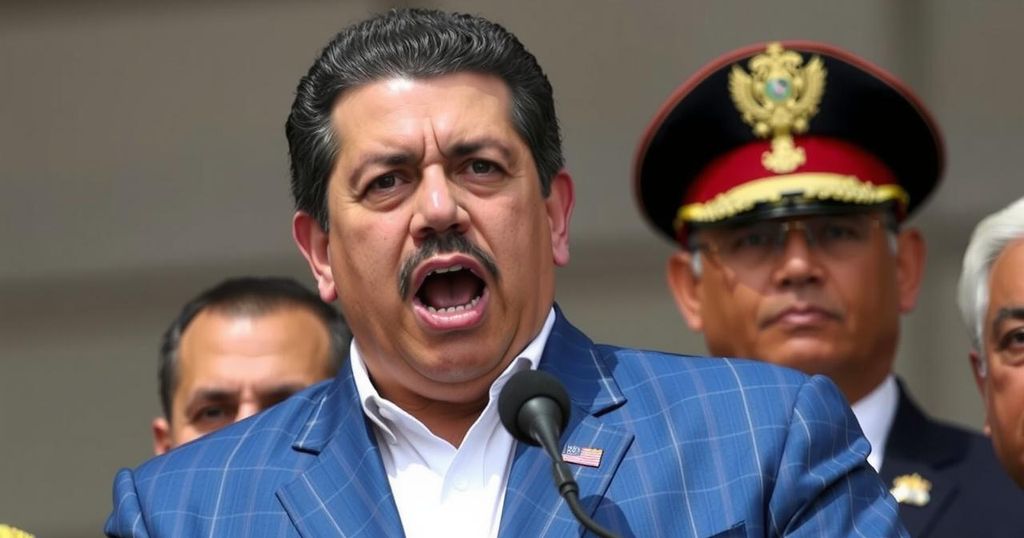
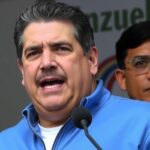
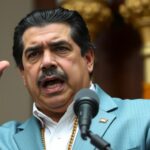
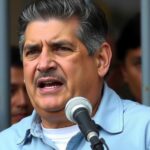
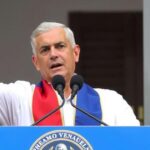



Post Comment